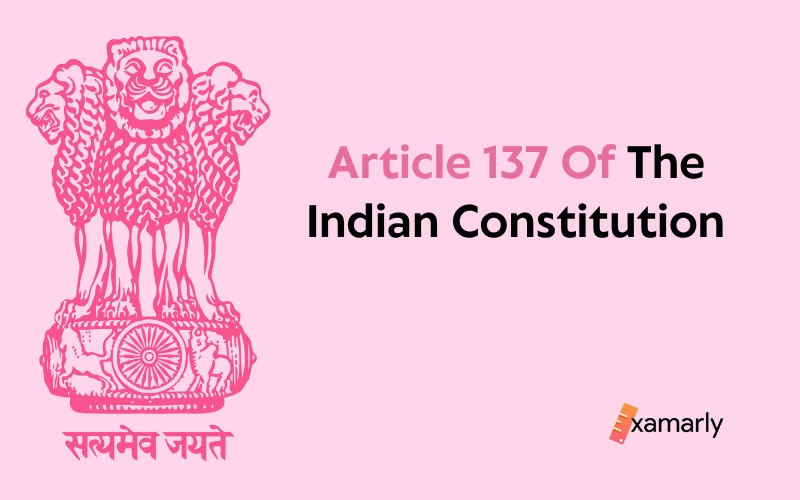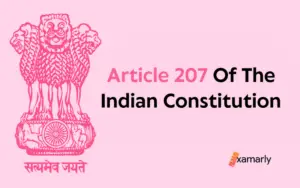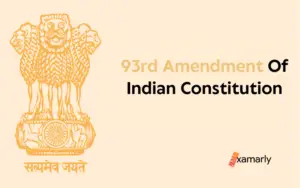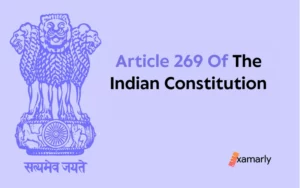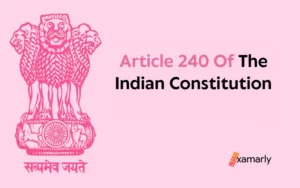Judgments and orders are subject to review by the Supreme Court, as outlined in Article 137 of the Indian Constitution.
A “review petition” is legally supported by this provision.
It is not a requirement that only parties involved in a matter may ask for the judgment to be reviewed. Anyone who feels wronged by a decision may request a review.
This post is beneficial for the UPSC preparation as Article 137 is a part of the Indian Polity of UPSC CSE Syllabus.
- What Is Article 137 Of The Indian Constitution?
- What Article 137 Enables Supreme Court?
- Scope Of Review
- Conclusion
- FAQs
- What Article 137 Deals With?
- What Is The Scope Of Article 137?
- What Article 145 Of The Constitution Discusses?
- What Is A Review Petition?
- Why The Review Power Of The Supreme Court Exercise In A Limited Manner?
- Which Supreme Court Jurisdiction Is Mentioned In Article 137?
- Who Can Seek A Review?
- What If Review Petition Fails?
What Is Article 137 Of The Indian Constitution?
The Supreme Court has the authority to examine any decision made or order issued by it, subject to the terms of any law passed by Parliament or any rules enacted in accordance with article 145.
What Article 137 Enables Supreme Court?
The Supreme Court of India has the ability to review its own judgments pursuant to Article 137, although it must do so in accordance with the provisions of any laws passed by Parliament. Rules established by the court according to article 145 may be used to exercise this authority. The Supreme Court will have the power to review on the following definitive grounds:
- The discovery of new, significant pieces of evidence: The Party seeking review on this ground must demonstrate that there was no remission on his part in introducing all relevant material during the trial since the review of the verdict is not an appeal nor a second chance for the Party who lost the case due to his negligence or indifference. Additionally, the evidence for which a review is requested must be pertinent and of a nature that, had it been brought to the court’s attention, may have possibly affected the verdict.
- An error or mistake on the record’s surface: The judiciary must make decisions carefully and sparingly because the term “error apparent on the face of the evidence” is not defined elsewhere in the Code or the Constitution. It should be noted, nonetheless, that no mistake may be deemed to be one that is obvious from the record alone and requires one to look deeper to determine the judgment’s accuracy. Therefore, the mistake must be apparent and shouldn’t need to be examined or supported by an argument.
- Any other reason that is adequate: The definition of “any other sufficient reason” has been enlarged, and it is now acceptable to use a decision or order that was issued without the knowledge of the true nature of the situation.No man shall suffer as a result of the court’s error, according to the court, which has been underlined as a principle of the administration of justice.
Scope Of Review
- The Court has the authority to examine its judgements in order to fix a patent error or glaring omission, but not to correct small errors of inconsequential import. It has been made clear by the Apex Court that a review is not an appeal in disguise.
- This implies that rather than reviewing the case from scratch, the Court is permitted to fix serious mistakes that led to a miscarriage of justice. In other words, When a review is conducted, the Court will not consider a fresh stock of a case; rather, it will focus on correcting significant flaws that led to an injustice being committed.
Conclusion
Review of judgments is the process that leads to the establishment of statute in India’s legal system, which has been unchanged ever since the enactment of the Indian Constitution.
Courts have carved out this ability in the past to prevent abuse of the judicial process or injustice, even in the absence of a statutory provision or guidelines establishing the situations in which it could modify its rulings.
The Supreme Court has the discretionary authority to review its own judgments in accordance with the constitutional provisions of Article 137 of the Constitution. A review petition can be filed by parties who are dissatisfied with an order handed down by the Supreme Court because it appears to contain an error.
For further Readings:
FAQs
What Article 137 Deals With?
In accordance with the provisions of Article 137 of the Constitution of India, judgments and orders are open to review by the Supreme Court, which also serves as the legal foundation for review petitions.
What Is The Scope Of Article 137?
The scope of the said article is limited to situations where the Supreme Court of India has the authority to examine its judgments to correct a “patent mistake,” as opposed to “minor mistakes of insignificant relevance.”
What Article 145 Of The Constitution Discusses?
The Rules of Court are discussed in Article 145 of the Constitution.
What Is A Review Petition?
A review petition is a request made to a court of law asking it to reconsider an order or decision that it has already rendered. Courts have the option to grant a review petition. There are limited grounds for review. And the deadline for filing an application for review petition is 30 days after the date of the judgment or order.
Why The Review Power Of The Supreme Court Exercise In A Limited Manner?
Although it is not an inherent authority of the Supreme Court, the ability to review its own judgments serves as a safeguard against the institution’s vulnerability to error and promotes the administration of justice. Therefore, it must be used in a constrained manner at all times.
Which Supreme Court Jurisdiction Is Mentioned In Article 137?
Review Jurisdiction is enshrined in Article 137 of Part V of the Constitution.
Who Can Seek A Review?
Any individual who feels wronged by a judgment may request a review in accordance with the Civil Procedure Code and the Supreme Court Rules.
What If Review Petition Fails?
Following the rejection of a review petition, a curative petition may be heard. A curative petition is typically not given oral arguments or oral hearings and is only considered on very limited grounds, much like a review petition.


